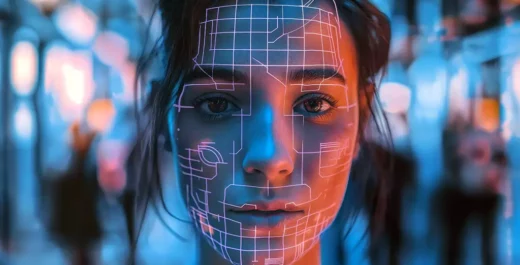Now Reading: AI-Generated ‘Girlfriend’ Scams Chinese Man Out of £22,000 – The Rise of AI Romance Fraud
-
01
AI-Generated ‘Girlfriend’ Scams Chinese Man Out of £22,000 – The Rise of AI Romance Fraud
AI-Generated ‘Girlfriend’ Scams Chinese Man Out of £22,000 – The Rise of AI Romance Fraud

Artificial intelligence (AI) has revolutionized many industries, but unfortunately, it has also opened doors for sophisticated scams. A shocking case from China highlights the dangers of AI-driven fraud, where a man was tricked into believing he was in a romantic relationship, only to lose nearly £22,000.

How the AI Romance Scam Unfolded
The victim, identified only by his surname Liu, thought he had found love with a woman named Ms Jiao. She frequently sent him affectionate messages, personal photos, and even videos. Liu was convinced she was real—until authorities uncovered the horrifying truth.
Ms Jiao never existed. She was an AI-generated persona, crafted with cutting-edge generative AI technology. The scammers behind the deception manipulated Liu into sending 200,000 yuan (approximately £21,722), claiming she needed money for medical bills and business expenses.
To make the scam even more convincing, the fraudsters created AI-generated images and videos of Ms Jiao, along with fake medical reports to back up their lies. Liu, believing he was in love, never questioned the legitimacy of her requests—until it was too late.
The Growing Threat of AI Romance Scams
Liu’s story is just one of many. AI scams involving romance fraud have been increasing worldwide, with criminals leveraging technology to impersonate real people or create entirely fictional identities.
Similar scams have been reported across different countries:
- France: A 53-year-old woman lost a staggering £661,508 after believing she was in a relationship with Hollywood actor Brad Pitt. The fraudsters used AI-generated videos and fake messages to make the deception seem real. The victim even divorced her husband before realizing the truth.
- United Kingdom: A British woman in her 60s lost £19,752 to a scammer posing as a US Army colonel named “Mike Murdy” on Tinder. The fraudster used AI videos and photos to gain her trust before manipulating her into sending money.
- United States: In Arizona, scammers used AI to mimic a woman’s daughter’s voice in an attempt to extort $1 million (£790,086) from her. The convincing deepfake voice message made it seem like her daughter was in distress, leading to panic and financial vulnerability.

How to Protect Yourself from AI Scams
With AI scams becoming increasingly sophisticated, it is crucial to stay vigilant. Here are some tips to avoid falling victim to these digital deceptions:
- Verify Identities – If you meet someone online, conduct video calls in real-time rather than relying on pre-recorded or AI-generated videos.
- Be Skeptical of Requests for Money – If someone you have never met in person asks for financial help, consider it a red flag.
- Check for Inconsistencies – AI-generated personas often have inconsistencies in their stories, such as slight differences in appearance or voice in videos.
- Use Reverse Image Searches – Scammers often use stock photos or AI-generated images. Running a reverse image search can help identify fake profiles.
- Consult Authorities – If you suspect you are being scammed, report the incident to cybercrime authorities immediately.
The Future of AI and Online Safety
As AI technology advances, scammers will find new ways to exploit its capabilities. However, awareness and education can help people protect themselves from falling into these traps. Governments and cybersecurity organizations must work together to develop stronger regulations to combat AI-driven fraud.
AI romance scams are a growing concern, but by staying informed and cautious, individuals can safeguard themselves from financial and emotional devastation.











